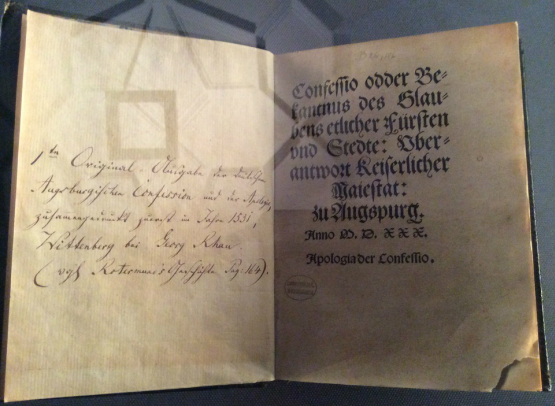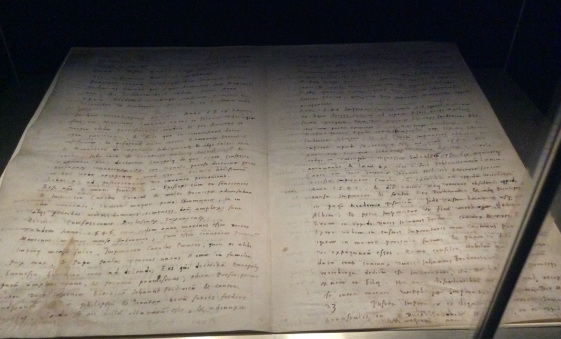posts
|
Though I went to Wittenberg to learn more about Martin Luther and visit the Lutherhaus museum, I was told that for an extra 2 euros, I could also tour Phillip Melanchton's house; so I agreed. I had read about Melanchton's place in the Reformation--particularly his work as the architect of the Augsburg Confession--but it was really Melanchton's personal life that impressed me on this trip. Melanchton entered university at the age of 12, earned a master's degree by age 19, and became a lecturer of Greek at Wittenberg University at 21. He was clearly a prodigy with a brilliant mind who imbibed the humanist teachings of Erasmus and others and returned to the sources of the Christian faith, reading the Scriptures and the church fathers in the original languages. Unlike Luther, Melanchton took a much more irenic approach to theological discourse--a tone in the Augsburg Confession that Luther criticized--and he had the ability to compromise on issues. When the Reformation came to Wittenberg (monasteries and convents were closing and monks and nuns began to marry), Luther arranged Melanchton's marriage to Katherina Krapp in 1520. From all accounts, the brilliant Melanchton deeply loved his wife and their four children. On one occasion, a visitor to the Melanchton home was surprised to see the theology professor reading a book and rocking a child to sleep at the same time. Melanchton was rather sickly and stuck to a strict diet of fish and eggs. He also struggled with insomnia, so he tried different wines to help him sleep at night. Like Luther, Melanchton had many dinner guests and table talks; however, as Luther hosted theological discussions after dinner, Melanchton preferred to talk about different types of wine! A final quality of Melanchton that impressed me was how he cared for the international students who came to study at Wittenberg. While Latin was the language of instruction in the university, church services were conducted in German and many of the students could not understand. So, in addition to his responsibilities as a professor and teacher, Melanchton gathered the internationals together for a worship service and time of teaching that they could understand. An early edition of the Augsburg Confession--a Protestant confession of faith presented in 1530. This is a draft of the history of the town of Wittenberg that Melanchton wrote. While it is neat to see a work in progress--corrections and all--of a brilliant thinker, it is also noteworthy that Melanchton saw paper as a precious item and did not like to waste it.
Comments are closed.
|
Archives
November 2023
|



 RSS Feed
RSS Feed
